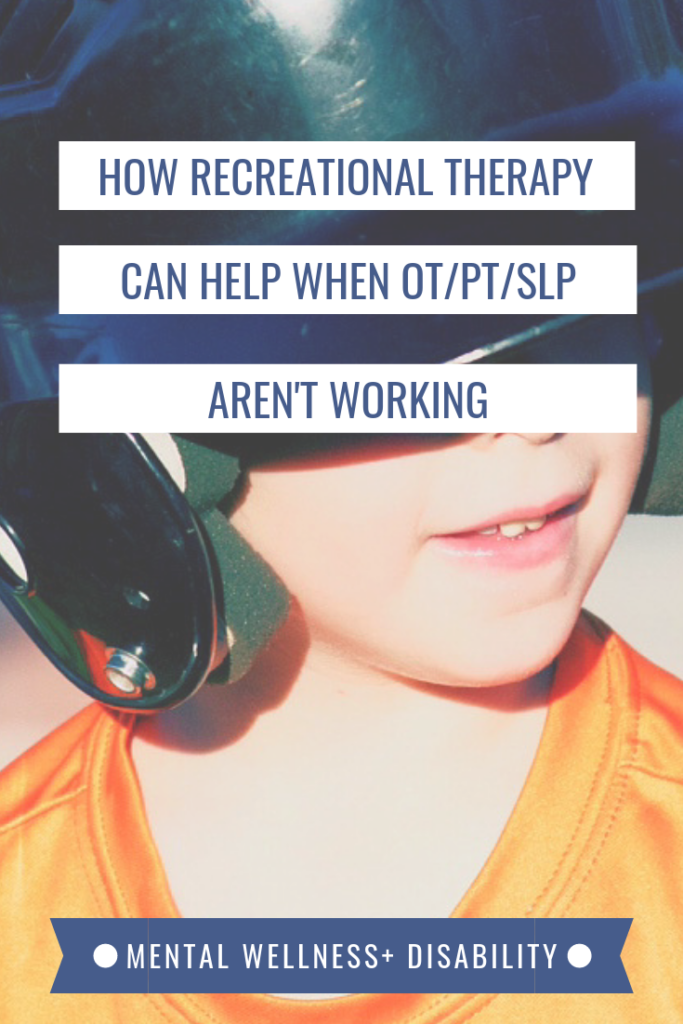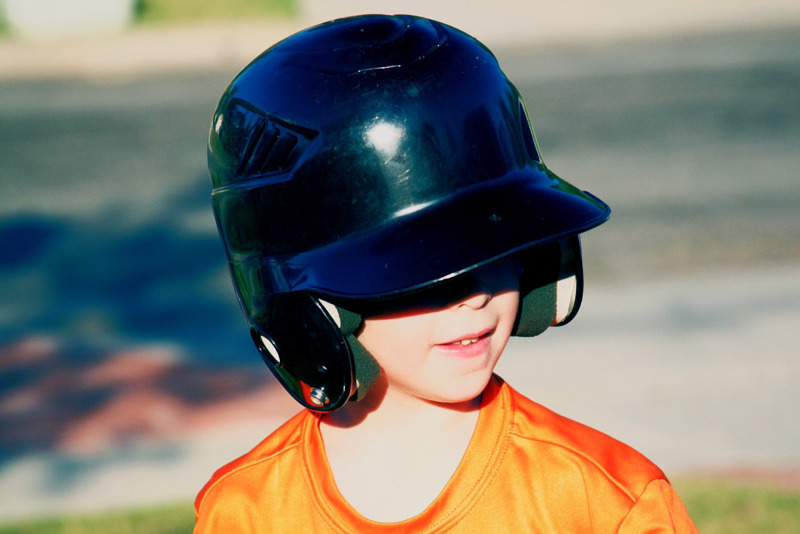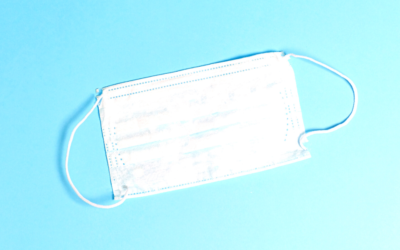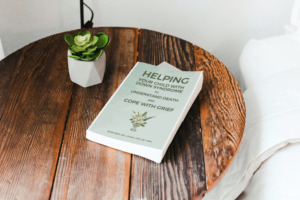Today I’m sharing a guest post from a good friend and a phenomenal resource for anyone interested in Recreational Therapy…and even if you don’t know what Recreational Therapy is, trust me, you’re probably interested in it if you’re like my counseling clients who have a child with disabilities!
Leah Cox Thomas is a Certified Rehabilitation Counselor and a licensed and certified Recreation Therapist (LRT/CTRS). She works at the University of North Carolina at Chapel Hill in the area of sports injury research.

Leah Cox, Center for the Study of Retired Athletes
Matthew Gfeller Sport-Related Traumatic Brain Injury Research Center at UNC-Chapel Hill
She’s published academic articles on Accessible Golf for Individuals with Autism Spectrum Disorder and Maximizing Vocational Outcomes Post-Traumatic Brain Injury through Rehabilitation Counseling and Recreation/Leisure Activities.
More importantly, Leah is genuinely passionate about helping people with disabilities live the best possible lives they can imagine for themselves. After suffering serious injuries in a car accident in her teens, Leah experienced firsthand how awfully people using wheelchairs could be treated in the community. She understands the struggle that is rehabilitation and recovery, because she’s lived it. She gets it.
Leah has a wealth of information on Recreational Therapy that she’ll generously share; please stick around after reading to add your stories and questions in the comments!

What to do if OT/PT/ST aren’t working or aren’t available?
You’re a parent of a child with special needs.
Your child has been having occupational therapy for months to work on various goals.
Then, one day, your child’s occupational therapist approaches you to tell you that either:
1) your child has ‘plateaued’, meaning they’ve stopped making significant improvements in therapy, and is no longer eligible for services or
2) your child is having a lot of trouble focusing during therapy sessions, making it difficult for the therapist to accomplish goals, and so the therapist is ‘firing’ your child as a client
As a parent, what are you supposed to do?
Sadly, these situations are common for many families that have children with special needs, and can happen in Occupational Therapy, Physical Therapy, or Speech Therapy.
I’ve witnessed it. It’s scary to think about what would happen if your child were to lose a service that is such an important part of their life and soooo important to continue building skills.
Not to mention, entitlements provided through Medicare/Medicaid may be dependent upon your child reaching certain goals over time.
OT, PT, & ST are all extremely beneficial. Sometimes though, despite all the benefits, individuals with disabilities may experience difficulty with a certain skill, task, or activity.
This is where recreational therapy can help. By using fun activities to promote skill building, your child can improve beyond plateaus and stay motivated to engage in traditional therapies.
What is Recreational Therapy?
The American Therapeutic Recreation Association defines Recreational Therapy as:
“a systematic process that utilizes recreation and other activity-based interventions to address the assessed needs of individuals with illnesses and/or disabling conditions, as a means to psychological and physical health, recovery and well-being… a treatment service designed to restore, remediate and rehabilitate a person’s level of functioning and independence in life activities, to promote health and wellness as well as reduce or eliminate the activity limitations and restrictions to participation in life situations caused by an illness or disabling condition.”
Basically, recreational therapy is using recreation and/or leisure activities (RLA’s) to bridge the gap that may exist in OT, PT, or ST by bringing fun to the equation.
The list of what could be used is truly endless, as RLA’s are any activities that are enjoyable or meaningful to the individual and that encourage the person to succeed in a achieving therapeutic goals.
Some commonly used RLA’s include:
- Individual physical activities like swimming, trampoline jumping, inline skating, etc.
- Team physical activities or sports like basketball, tennis, soccer, etc.
- Arts and crafts like painting, drawing, sewing, etc.
- Performance arts such as music, dance, drama, or other performance art
- Outdoor activities like hiking, boating, rock wall climbing, etc.
- Cooking or baking whether for the person to enjoy, to share with a group, or to donate to a cause, such as at a soup kitchen
- Animal assisted activities such as horseback riding, dog walking or training, caring for a pet, etc.
- Social activities such as clubs, group outings, or classes
- Relaxation activities such as mindfulness, deep breathing, or yoga
- Individual activities such as reading a book, playing computer games, or listening to music
The important thing is that the activity is meaningful AND enjoyable to the person. This can be tough for parents to accept sometimes, but this means that your RLA’s are going to be different than your child’s!
The Reality of Recreational Therapy
I imagine you’re thinking, “This is all great but HOW do we find Recreational Therapy services and how much does it cost?”
Unfortunately, recreational therapy is currently not a reimbursable service under Medicaid or Medicare like OT, PT, or ST. Traditionally its part of the “blanket services” that someone receives when they have an inpatient stay in a hospital or rehabilitation facility.
A CTRS (Certified Therapeutic Recreation Specialist) is the qualified provider who can deliver recreational therapy, and most are employed by hospitals and rehabilitation centers, though finding CTRS’s in private practice is becoming more common.
Just because recreational therapy isn’t yet a reimbursable service that can be delivered at home or in an outpatient clinic doesn’t mean you still can’t make it work for you at home!
It’s relatively simple to begin incorporating “fun” into “functional” activities. All it takes is a little bit of creativity!
An Example of Recreational Therapy in Action
I once taught an adapted swim class and was paired with a young man with Autism. His mother warned me that he had difficultly paying attention and was easily distracted. He also was more interested in asking questions than swimming.
I realized that I needed to let his interest in asking questions motivate him to improve in swimming!
We set the following structure in place during lessons:
- Swim 1 lap = ask 3 questions
- Practice 1 new swim move = 3 more questions
- Swim another lap = 3 more questions
- Put your head underwater 3 times = 3 more questions
At each class I gradually added more tasks to be completed before he could ask questions.
By the end of the class he was able to swim multiple laps successfully. Knowing he would be rewarded with something that motivated him allowed him to complete the task at hand!
Other ways to incorporate Recreational Therapy at home
Other examples that parents can implement themselves might be to:
- Playing basketball to improve sorting skills and lengthen attention span
- Bowling or other group activity or club to practice social skills
- Baking cookies to practice math skills or fine motor skills
- Brushing teeth for the length of their favorite Katy Perry song to promote healthy oral hygiene habits
Using RLA’s can be intensive or simple, depending upon your child’s needs, but always, the goal is to implement structure while also having fun.
Individualized motivation is key to success. Lack of motivation can be what causes frustration and stress with traditional therapies.
By using a RLA that is meaningful and interesting to the individual, then the motivation to be successful is already present!
Where to find more Recreational Therapy ideas
Here are some of my favorite resources for finding recreational therapy ideas around the web and in your own town!
Human Kinetics Activity analysis Great instructions for matching goals and skills to RLA’s, this page details how to take a specific activity that someone many be struggling with and break it down to the specific skills necessary to complete the task.
RT Wise Owls This Temple University site provides evidence based recreation and leisure based activities for a variety of populations.
RecreationTherapy.com Another great website for recreation and leisure resources & ideas.
Rec Therapy Ideas Blog This blog is written by a recreation therapist turned school psychologist, and includes tons of ideas for individual and group activities.
Pinterest First, follow my Recreation Therapy ideas board.
Then, check out some of these other boards:
- https://www.pinterest.com/missandrea/recreation-therapy/
- https://www.pinterest.com/mosswoodconnect/
- https://www.pinterest.com/RAResources/
Local Parks and Recreation Your local parks and recreation department should have recreation and leisure activities specifically available for individuals with disabilities. For example, the Town of Cary, North Carolina has a phenomenal Specialized Recreation Department. After clicking the link, you can view the current season’s Programming Guide, and flip to the Specialized Recreation section.
The Miracle League This adaptive baseball league is known throughout the US, and our local League in the Triangle region of NC is fantastic.
These are just a handful of the resources available to help incorporate more fun into your child’s life while also working on attaining goals and building specific cognitive, social, coping, and physical skills.
Have you or your child used Recreational Therapy to attain a goal? Leave a comment and share your success story!
Or do you have questions about how to incorporate RLA’s into your daily routine? Here’s your chance to get help from a recreation therapist without having to submit an insurance claim!












